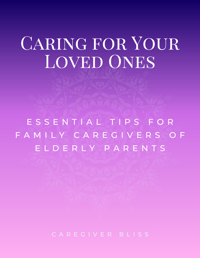Does Medicaid Pay Family Caregivers in Minnesota?

Caring for a loved one with a chronic illness or disability can be emotionally taxing and financially challenging. In Minnesota, as in many other states, families often find themselves grappling with the question of whether Medicaid provides financial support for family caregivers.
This article aims to shed light on the current state of Medicaid policies in Minnesota and explore the avenues through which family caregivers can receive compensation for their vital role.
Understanding Medicaid
Medicaid is a joint federal and state program designed to assist individuals and families with low income in obtaining necessary medical care. While Medicaid primarily focuses on covering the healthcare costs of eligible individuals, it also extends support to certain home and community-based services, which may include assistance from family caregivers.
Minnesota's Medicaid Programs
Minnesota offers several Medicaid programs, each tailored to specific populations and needs. Two key programs that may involve compensation for family caregivers are Medical Assistance (MA) and the Elderly Waiver (EW) program.
Medical Assistance (MA)
Medical Assistance is Minnesota's version of the federal Medicaid program. It provides health coverage for low-income individuals and families. While MA primarily focuses on medical services, some waiver programs may allow for compensation for certain caregiving services. Eligibility criteria and covered services can vary, so it's essential to check the specific rules for each waiver program.
Elderly Waiver (EW) Program
The Elderly Waiver program is designed to help seniors age in place by providing services and support that allow them to remain in their homes rather than moving to a nursing facility. Under the EW program, family caregivers may receive compensation for certain caregiving services, such as assistance with activities of daily living (ADLs) or instrumental activities of daily living (IADLs). However, eligibility requirements must be met, and there may be caps on the amount of compensation provided.
Navigating Compensation for Family Caregivers
While Medicaid programs in Minnesota may offer compensation for family caregivers, it's crucial to understand that the process can be complex, and not all caregiving situations may be eligible. Here are some key steps to navigate the landscape:
- Assess Eligibility: Determine if the care recipient is eligible for Medicaid and specific waiver programs. Eligibility criteria often include income and asset limits, as well as functional assessments to determine the level of care needed.
- Understand Covered Services: Familiarize yourself with the services covered by the relevant waiver program. Compensation for family caregivers may be available for specific tasks related to the care recipient's health and well-being.
- Create a Care Plan: Work with healthcare professionals to develop a comprehensive care plan outlining the specific caregiving services required. This plan is often a crucial component in demonstrating the need for compensation.
- Apply for Waiver Programs: Once eligibility is established, submit an application for the relevant waiver program. Be prepared to provide documentation, including the care plan and any supporting medical records.
- Stay Informed: Keep abreast of changes in Medicaid policies and waiver programs. Rules and regulations can evolve, so staying informed ensures that you are aware of any updates that may impact caregiver compensation.
Conclusion
While Medicaid in Minnesota may offer financial support for family caregivers through specific waiver programs, navigating the intricacies of eligibility and compensation can be challenging. Families should proactively seek information, work closely with healthcare professionals, and be persistent in advocating for the support they need. By understanding the available resources and staying informed, caregivers can better navigate the system and secure the compensation they deserve for their invaluable role in supporting their loved ones.
We hope this article has provided valuable insights into Medicaid's support for family caregivers in Minnesota. Your experiences and perspectives are crucial to enriching this discussion, so we encourage you to share your stories, questions, or any additional information in the comments below. Your contribution can help others navigate this complex landscape and find the support they need.
Are you interested in learning more about which states pay family caregivers through Medicaid? Read the article: Does Medicaid Pay Family Caregivers for detailed information by state.
Free Guide:
Caring For Your Loved Ones
 Attention family caregivers! Are you struggling to provide the best care for your aging parents? Don't worry, we've got you covered.
Attention family caregivers! Are you struggling to provide the best care for your aging parents? Don't worry, we've got you covered.
Download our free guide, Caring for Your Loved Ones: 10 Essential Tips for Family Caregivers of Elderly Parents, and unlock the secrets to becoming an exceptional caregiver.
From adapting the home environment to promoting independence, this invaluable resource will transform your caregiving experience into a more rewarding journey. Don't wait—give your loved ones the care they deserve, and download your free copy today!
